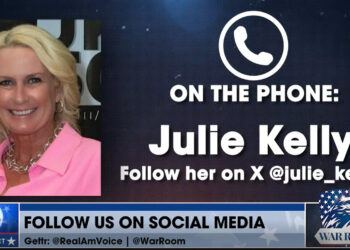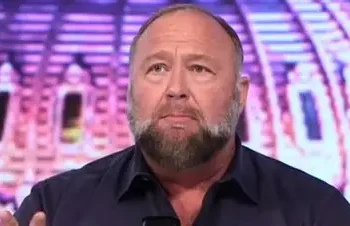President Trump’s Monday announcement on autism research marks an unprecedented, personal, and potentially transformative intervention in public health. The administration is launching a full-scale, all-agency effort through HHS to investigate autism’s environmental and pharmaceutical causes, challenging decades of politicized science and corporate influence.
WarRoom guest Panelists, Tony Lyons, Mary Holland, and Dr. Brian Hooker, hailed the initiative as bold, evidence-driven, and a historic victory for parents and children nationwide.
Mary Holland: President Trump Is Staking His Presidency On Ending The Autism Epidemic @maryhollandnyc pic.twitter.com/fueoTcD61L
— Bannon’s WarRoom (@Bannons_WarRoom) September 22, 2025
In the press briefing described by panelists as "stunning” and "from the heart,” Trump emphasized that prior NIH research focusing solely on genetics ignored environmental triggers, likening it to studying lung cancer without considering smoking.
He pledged transparency, fast-tracked research, and public updates, while spotlighting immediate concerns such as acetaminophen (Tylenol) use during pregnancy. The administration announced plans for label changes and a nationwide education campaign, giving parents practical guidance to protect their children.
Trump also addressed vaccine practices, advocating spaced-out administration and caution with mercury- or aluminum-containing vaccines. Panelists emphasized that this guidance empowers parents to make informed choices, disrupting decades of top-down, one-size-fits-all mandates.
Tony Lyons: Donald Trump Should Be Called 'The MAHA President' pic.twitter.com/gFEM8KDSWd
— Bannon’s WarRoom (@Bannons_WarRoom) September 22, 2025
Dr. Brian Hooker noted this represents a rare moment where federal policy aligns with independent science and parental authority.
The panel underscored that this initiative is deeply personal for Trump, who has long collaborated with figures like Bobby Kennedy on vaccine and autism issues.
Mary Holland highlighted that the president is effectively "staking his presidency” on ending the autism epidemic, making it a defining issue of his post-office legacy. Tony Lyons described the Maha movement’s strategy, mobilizing thousands of influencers to amplify the initiative, support independent research, and sustain public engagement.
The upcoming Maha Institute Symposium was highlighted as a critical platform for presenting rigorous science and fostering collaboration between researchers, policymakers, and families.
Panelists praised the administration’s willingness to challenge entrenched corporate interests. Lyons and Holland emphasized that decades of "fake corporate science” have dominated the autism conversation, and Trump’s leadership signals a new era of transparency and accountability.
Dr. Hooker celebrated the reversal of lost ground, calling the initiative a "historic reclamation of scientific integrity” for children’s health.
Resources for families include Children’s Health Defense and Maha Action, offering guidance, data, and opportunities for advocacy. Panelists emphasized that independent research and community involvement will be crucial to sustaining momentum and ensuring actionable results.
Bottom Line: The panel framed Trump’s autism initiative as bold, personal, and historically significant. By combining political will, parental empowerment, and scientific rigor, the administration is confronting entrenched pharmaceutical power, protecting children, and potentially reshaping public health policy.
For parents, researchers, and advocates, this is a moment to engage, act, and follow the science — because, as the panel agreed, the spell of silence and inaction around autism has finally been broken.




